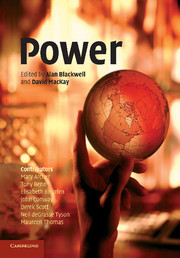7 - Power in society
Published online by Cambridge University Press: 07 August 2009
Summary
Most people in the world feel powerless. There are three key political questions: ‘What's going on?’, ‘Why?’ and ‘What can we do about it?’ But if you ask ‘What's going on?’, people say, ‘I'm not quite sure.’ ‘Why?’ ‘Well, nobody's told me.’ ‘What can we do about it?’ ‘Probably not very much.’ That sense of powerlessness explains an awful lot of what we talk about as apathy, cynicism and so on, and this is what I want to address. I want to look at some of the sources of power, what they are, how they operate, who controls them, and ask the question, ‘How can we get some influence over the powers that exist in order to improve our own lives?’
The most obvious example of power is power by conquest. Julius Caesar tried to get us into the European Union in 55 BC, and we still use the penny, which was a Roman coin. Margaret Thatcher was not the first Iron Lady – Boudicca killed 7000 Romans and raised the Men of Essex in order to deal with the Treaty of Rome. Power by conquest was the basis of all the great empires of the past. The British Empire is one example – when I was born in 1925, 20 per cent of the population of the world was governed from London. Now we live in an American empire. There are certain consequences of that, which impinge upon the way our politics are conducted.
- Type
- Chapter
- Information
- Power , pp. 114 - 129Publisher: Cambridge University PressPrint publication year: 2006



